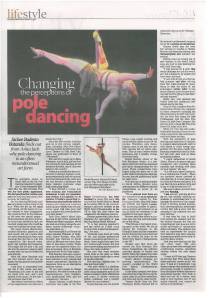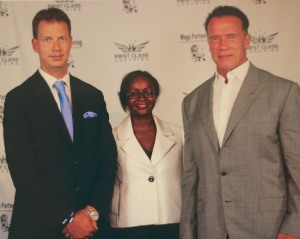Jo-Anne Richards, author of The Imagined Child, invited me to participate in the The Next Big Thing Challenge. I am inviting other writers to participate in this challenge; Benon Herbert Oluka, Mildred Kiconco, Beverley Nambozo, David Tumusiime and Brian Bwesigye
Ten Interview Questions for the Next Big Thing
What is your working title of your book?
A Lesson in Forgetting
Where did the idea come from for the book?
After reading an article about the presidential pardons and subsequent releases of former henchmen during Idi Amin’s time, I was curious about the reasons for their acceptance of the pardon and how their return would affect the families who had lost their loved ones during this time.
What genre does your book fall under?
Fiction
Which actors would you choose to play your characters in a movie rendition?
I have not yet thought about the movie cast for the book.
What is the one-sentence synopsis of your book?
A former spy chief in a dictatorial regime is released after 25 years in life imprisonment. His return reawakens a country’s amnesia of the past and explores how nations and its people helplessly deal with the mechanisms set up to handle past atrocities and heal wrongs.
Will your book be self-published or represented by an agency?
By agency
How long did it take you to write the first draft of your manuscript?
It is a work in progress. I have been working on it intermittently since 2010.
What other books would you compare this story to within your genre?
Thomas E Kennedy’s, In the Company of Angels.
Who or what inspired you to write this book?
I read newspaper reports on the release of former spy masters in Uganda who had been serving life imprisonment. Their release raised debate in the country on the morality of their release and what it meant for fragile healing the country was going through to forget its atrocious past. I was curious to capture this event in our history.
What else about your book might pique the reader’s interest?
A Lesson in Forgetting unlike numerous stories that locate the isolating impact of warfare upon wives, lovers and /or mothers, addresses the relation within the family, in this case father and daughter.
Full synopsis of A Lesson in Forgetting
Sometimes families keep secrets in the belief that they are protecting their loved ones. Sometimes these secrets are too big to remain hidden forever. They burst open and come to haunt the protectors and protected…
A Lesson in Forgetting unlike numerous stories that locate the isolating impact of warfare upon wives, lovers and /or mothers, addresses the relation within the family, in this case father and daughter. The story revolves around Nasser, a former henchman in Idi Amin’s Uganda, who is released from prison twenty-five years after he was arrested and sentenced to death, and his feisty daughter Naboro, who was always told that her father had died a hero. Set in the backdrop of the 2006 presidential elections, Nasser’s release is part of the incumbent president’s attempt to improve his tarnished image within the international community. Nasser on return from the ‘dead’ attempts to build a relationship with his daughter, he must face and own up to his past crimes against humanity. His return disrupts the peaceful life his daughter is building for herself as she readies for her wedding. Her mother announces that her dead father is no longer dead but rather returning from prison. Naboro has to deal with the blow of the lie her life has been built around. Furthermore everyone else has been in the know of the closely guarded secret. As she comes to terms with the fact that her father was a man scorned and feared by many Ugandans, she learns that her fiancé’s family was a victim of her father’s brutality. Torn between her love and family ties, she follows in her mother’s footsteps, who got estranged from her family when she married Nasser. Her fiancé is pressured by his family to break off the wedding plans. She is devastated because his return is the cause of her breakup with her fiancé. The story explores Nasser’s life in the army, what motivates him and his loyalty to Idi Amin, Zahara’s love story and the decision to keep the truth of his incarceration from Naboro the last child born immediately after his arrest.
It explores Zahara’s loyalty to Nasser all these years because he helped her live her dreams of being a fashion designer. He opened doors for her and did not laugh at her when no one believed that designers could make a living in the Uganda of the 60s. She is selectively blind to her husband’s deeds although she knows that times are bad. She is silent about the mass disappearances and buries herself in her fashion world. On return from prison, Nasser asks his wife for forgiveness. On return he is a more religious man and wants to impose his beliefs on the family he finds behind. His transformation from an all powerful torturer to a religious man does not endear him to Naboro, who has read a lot more about her father’s deeds in the papers.
His return reawakens a country’s amnesia of the past and explores how nations and its people helplessly deal with the mechanisms set up to handle past atrocities and heal wrongs. The story brings the family into the larger context of a nation having to move on from legacies of past conflict, but with the ethical dilemmas of having to ask how one lives on, at the level of dailiness, with the knowledge of what a neighbour, a family member, is capable of in the name of ideology. How do communities, nations, and families live with people caught up in political fervour to the point of perpetrating crimes against humanity? What does one do with the ‘ghosts’ of national violence? These people inhabit the everyday, and their presence is a reminder of the limits one should not cross in the name of ideology and they are a source of acute guilt and grief, confusion when they are loved ones as will be explored in this novel. The novel explores the silences of parents and children, what they know and hide from their children because of the consequences they know might affect the stability in their lives. The silences in the book will work as metaphors for the larger struggle to find a language with which to address one another when an agent of such violence reappears to take his place in the everyday.



 Investing in real estate is still the surest way to make any meaningful returns. Photo by Ismail Kezaala.
Investing in real estate is still the surest way to make any meaningful returns. Photo by Ismail Kezaala.




